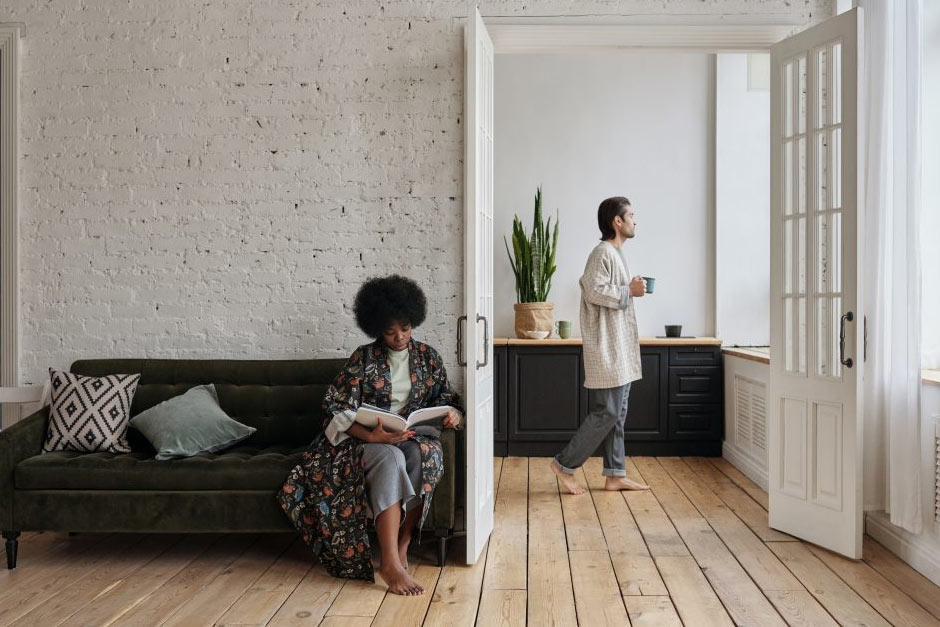Stuck With You: Maintaining Healthy Relationships Despite COVID-19

It’s no secret that life has changed in many ways since we first started to feel the effects of the pandemic here in the US. Schools are closed. Businesses are closed or are operating in a limited capacity. Many people have found themselves without steady work. A lot of people are suddenly required to shelter in place with family for an extended amount of time—or they might be alone. Routines that many people relied on—home, work, school, travel—are gone. Sherry Cormier, PhD, a psychologist notes that we are experiencing a kind of collective grief over the loss of our everyday lives.
Even so, people are resilient and adaptable. And, whether you are sheltering in place or starting to return to a relatively normal life, your friends and family are probably your top priority right now. Today, we’re going to discuss some tips for maintaining healthy relationships as we deal with COVID-19.
One of the first things that any couple or family can do is to establish boundaries. In her article Relationships, Covid-19, and Sheltering in Place, Stacy Lee of The Couples Institute Counseling Services notes that sheltering in place removes the clear divide between home and work and that there is often a time blur between home and work. Since many people are now working from home, the work-life balance is gone. As such, it’s important to start setting up boundaries for your partner and the rest of your family, if applicable.
Start by setting up a separate work space. This can help minimize distractions and keep everyone on task. If you don’t have a desk, a wall of pillows on the couch can help to create a bit of privacy. If you have headphones, use them. Headphones have a dual purpose. They can block out the surrounding background noise of a busy household and they can keep you on task without forcing everyone to be privy to what you’re doing. Think of a conference call. No one else in the house has to listen to what your boss is talking about and your boss doesn’t have to listen to your favorite TV show in the background. Finally, do your best to establish set work hours and set home hours away from your work. This can give you time to rest and recharge.
Next, do your best to be clear about timing with your family. Many people are experiencing trouble with their sleep schedules and are having trouble keeping track of what day it is. Your partner might be functioning on a totally different schedule than you at the moment. As such, it’s best to communicate and confirm timing when it comes to scheduling things like a family video call or an appointment. We believe good communication is always important and rarely practiced enough.
Make time to maintain relationships or do activities “outside the home.” The Association for Psychological Science emphasizes that maintaining social connections can help to reduce feelings of isolation and offer a means of support and reassurance that they might not get otherwise. It also allows individuals to provide support to others as well. This can be especially beneficial to individuals, like the elderly, who may be alone or have severely limited contact now. Take an online cooking class together or set aside a date night. Essentially, you want to do things together that draw attention away from focusing only on the less desirable aspects of being at home.
Be kind to each other and do your best to understand where your partner is coming from. Try your best to be compassionate. If you have an argument or disagreement, try to handle the situation from a rational perspective instead of needling or immediately attacking the other person’s weaknesses.
Don’t be afraid to ask for help. Be open with each other about what’s bothering you. If you can’t solve it on your own, ask for help from family, friends, or a professional. Many professionals are offering virtual and telephone access to their services. If you are in a situation that puts your health and safety (or that of your family members) at risk—like domestic abuse—get help right away.
Finally, sometimes, it’s best to be apart. If you’re a new couple or a couple going through a divorce or a separation, it might be best to avoid sheltering in place together or calling it quits if the situation arises. Don’t feel like you have to force yourself to stay together in order to maintain the semblance of a happy home situation. Lots of relationships aren’t built to withstand the stress of a pandemic situation. And that’s perfectly okay.
If you need the help of a licensed private investigator for relationship issues, like those related to cheating spouses, child custody concerns, or court order violations, consider us at Linked Investigations. We have over thirty years of experience and are here to help, even if it’s just to talk things out. Call 714-432-9911 for a free consultation.











